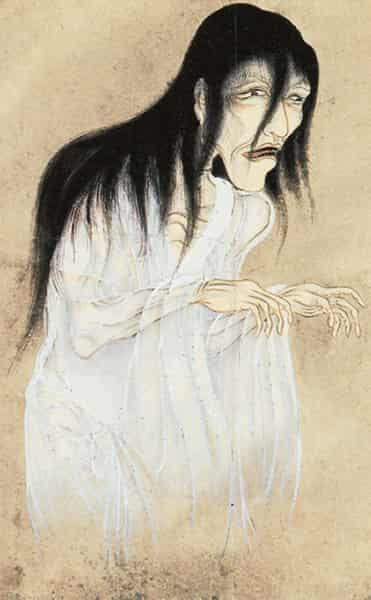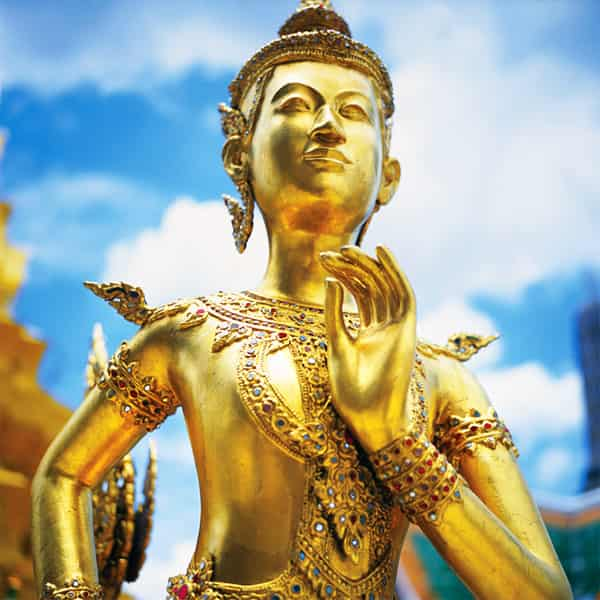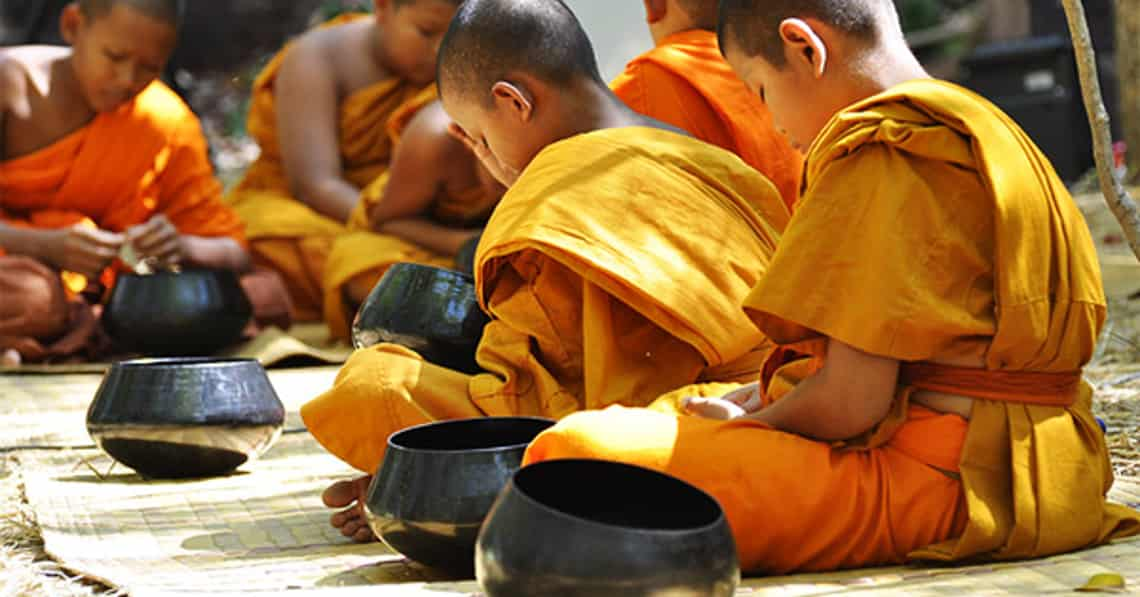If you have been in Thailand long enough, and by that I mean no more than a few days, you will be very aware of the vast amount of religion that is everywhere. Buddhist temples, shrines, monks and pretty much anything that you can hang some kind of icon on are abundant wherever you look. But what does it all mean? This was a quest of mine for the last four years and I would like to humbly welcome you to the bizarre religion that is Thai Buddhism.
The great difficulty one finds when trying to understand what is actually going on is that we all try to understand through what we know to be ‘Buddhist’. Be it from what we learnt at school or from a discussion with friends after one too many beers. Forget it. Forget it all and try to take a more sociological approach. Farmers and elites both call themselves Buddhist but you wouldn’t see a businessman adorning 33 religious medallions (always in odd numbers please), nor would you see a farmer making merit by donating several thousand baht and some flowers to a Ganesh deity. Yes thats Ganesh, from Hinduism.
The problem that arises is that ‘Buddhism’ in Thailand isn’t Buddhism at all. It’s what us scholars would call ‘Syncretic Religion’. In other words, you see Thailand and neighbouring countries adhering to not only Buddhist practices, but also local folk religions, animism and the supernatural.
Thailand is perhaps the only country in the world that requires the King to constitutionally be the upholder of Buddhist faith, much like the Queen of England being the head of the Church of England. Thus Thailand is officially Theravada Buddhist, and their laws, traditions and even royal rituals clearly reflect this. Around 90% of the population is Buddhist, and we live in the future, this year being the year 2557. Beginning from the death of Gautama Buddha it keeps us ahead a comfortable 543 years, but don’t worry, we aren’t that much more advanced.
But what about the bizarre ways that people practice here that I mentioned at the beginning? Well let’s start with ghosts. If you know any Thai person, you probably have at one time or another talked about ghosts or Phi (??).
Does Buddhism mention ghosts or the supernatural? Well not exactly. Pretty much in the same way Christianity labels the supernatural as demonic, Buddhism recognises ghosts but warns against following such beliefs as it will hinder your enlightenment which should be done through meditation and self realisation, rather than some offering to the ghost of Christmas past.

Let me give you some examples of ghosts that you will probably meet in Thailand. The most common one you will hear about is the Phi Phret (??????) or the Hungry Ghost. This ghost, who’s name is most likely being used as a friendly insult, is tall and slender, with a massive tongue and exists in the realm of ‘purgatory’ and hangs out at temples. It emits a high pitched sound like an air raid siren, so keep an ear out: it will probably be only you who hears it. If you do hear one, make merit for it. They can’t make it for themselves; so they rely on humans to help them out of purgatory. Another would be the Phi Pa (?????) and this one loves the woods. Never take a walk in the jungle and make a joke about a ghost; it will not be taken lightly. This is not to be confused with Phi Ba that your Thai friends may call you when you do something stupid. It means stupid ghost, but you aren’t a ghost, are you?
The thing is, it works for Thais to contextualise ghosts as living things, just like you and me, causing it to work seamlessly with the doctrines of Buddhism. Quite a stretch I know, yet this works with most other ‘non-Buddhist’ beliefs, such as icon worship, that not only litter the Thai Buddhist spectrum but can also be really confusing.
Take a stroll behind Marin Plaza and you can find a huge statue of the Hindu Deity, Ganesh. The use of deities like these came about when Buddhism was first brought to Thailand along with Hinduism, and were practiced side by side for decades. Ganesh is now used to make merit. An icon for fortune and success, it is favoured by the richer community. If you see a business with a picture of Ganesh upside-down, you know they are having difficulty staying afloat. If someone is wearing a Ganesh around their neck it is meant to help them overcome obstacles, and people really believe it too. Perhaps it is the self confidence in the amulet that helps them, or maybe Ganesh is really working damn hard. It’s not for me to say.
Probably the strangest part of Thai religious tradition is that of amulets and fortune-telling, reappearing big time in the eighties. Amulets are stuck to cars, above doorways, around necks, tattooed, and sold at every market you can find, alongside a queue of ten people waiting for their palms to be read (foot readings free every Thursday). Most amulets will contain images of the Buddha himself or magic monks who, though popular religious media, have become like deities themselves. Not always good fame however, I’m looking at you Luang Pu Nenkham.
Amulets are supposed to be for protection and must always be worn in an odd number. I know of people who have had car crashes with their car crumpled like a can of sardines, yet they apparently got away unscathed, as if a bubble of protection was formed during the crash. Amulets are big business, which again should go against the Buddhist principles yet seems to thrive. So much so that there are magazines and cable TV channels dedicated to the trade of these spiritual commodities.

If you are wary of fortune-telling as I am, be it because you don’t believe it or because there is maybe some truth in it (probably through self prophecy) try and ask someone who has done it themselves. You will find that most take it very seriously, and if told not to drink alcohol for three months, even young 20-year-olds will really stop. But it begs the question; how many parents pay off the fortune-teller to keep their kids from going out, right?
Clearly this topic is complex, but by delving in you can start to see why exactly Thai Buddhism is so unique and so interesting. Next time you see an old street vendor adorning multiple amulets, odd numbers again please, you now know what its all for.
My advice is to not to try to understand what you see through Buddhism, but see it as uniquely Thai. In Southeast Asia, Thailand is the most famous for it quirkiness, perhaps to the dismay of Sri Lanka due to its status as the ‘Capital of Theravada Buddhism in South East Asia’. Keep asking questions and don’t be too quick to judge. It may be inconsistent, yet it’s fascinating. But you know that already because you’ve read to the end. You must be pretty curious, right?
